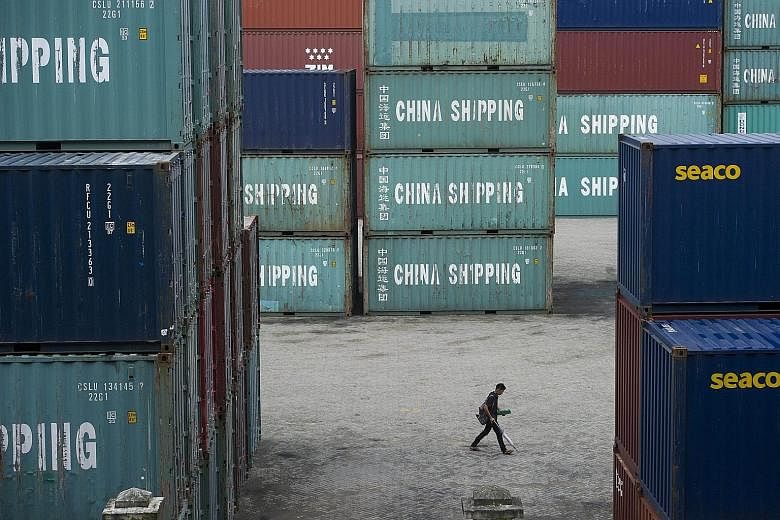Myanmar looking forward to greater prosperity
Mr Maung Maung Lay, vice-president of Union of Myanmar Federation of Chambers of Commerce and Industry, believes the Asean Economic Community (AEC) will help alleviate poverty and nurture local businesses.
"We have to follow the trend. We need to change our mindset. We need to train our people. We need to have the country in line with the regional context," ?he said. He also acknowledged that local businesses must strengthen their operations and be encouraged to face regional challenges, but smaller firms, in particular, would need government assistance.
Mr Maung Aung, senior adviser to the commerce ministry, is also optimistic. "AEC is an excellent opportunity for our citizens and business people. We all need to prepare to realise the potential and seize the opportunities," he said.
ELEVEN MEDIA GROUP/ASIA NEWS NETWORK
Brunei seeking to diversify economy
AEC will sustain the growth of Bruneian businesses, helping the sultanate to diversify its oil-dependent economy.
Analysts and business leaders interviewed by The Brunei Times said regional integration will allow most local businesses to access a wider market. This, in turn, will develop the private sector and provide more job opportunities to Bruneians.
Dr Mohammad Parvez Imdad, senior economist at the Asian Development Bank, said Brunei stands to benefit from an increase in growth and foreign direct investment brought about by AEC. He noted Brunei has been active in working towards increased liberalisation of trade and travel restrictions in the region. But AEC's gains will be realised only if Brunei implements policy reforms that will make its firms competitive.
Ms Lisa DP Hj Ibrahim, a member of the Asean Business Advisory Council for Brunei, said: "A lot?of local business standards are being raised as the companies gear up to become more competitive under AEC. That is good for the country in the long term because it improves the other aspects in business such as corporate governance."?
THE BRUNEI TIMES/ASIA NEWS NETWORK
Laos working hard to meet its obligations
At a Lao-Thai border crossing, a driver picks up a card and places it on a red sensor to pay the bridge crossing fee. A second later, the barricade rises and allows the vehicle to pass. Within an hour, a large number of vehicles have smoothly crossed the border.
This recently introduced service at the first Lao-Thai Friendship Bridge, which carries traffic entering Vientiane from Thailand, has greatly sped up the immigration process. It is all part of efforts to facilitate the passage of people and goods and foster regional and global integration.
Over the past seven years, Laos has invested heavily and worked hard to improve infrastructure and laws to be ready for AEC.
The director-general of the Foreign Trade Policy Department, Mr Saysana Sayakone, told Vientiane Times in an interview: "There are more than 500 measures that all Asean countries have to implement in order to create the Asean Economic Community. Laos has achieved 93.4 per cent of these international obligations."
VIENTIANE NEWS/ASIA NEWS NETWORK
Cambodia faces challenge of competition
Cambodia is set to enjoy significant social, security and economic benefits from Asean integration, according to Mr Seang Sopagna, president of the Cambodia-Asean International Institute, in an interview with Rasmei Kampuchea.
Among the benefits are the market of 630 million people, the facilitation of trade, capital, investment, goods and services, capacity building opportunities, reform, welfare and connectivity as well as infrastructure, he noted. However, Cambodia will also face challenges when AEC is formed, such as the loss of revenue from customs tax collections, he said. The free flow of goods from the other Asean countries will also be a challenge, as Cambodia's industries would find it difficult to compete with regional production chains.
To overcome these challenges, the country will need to invest in training and language skills in order to develop skilled human resources with high productivity.
RASMEI KAMPUCHEA/ASIA NEWS NETWORK

